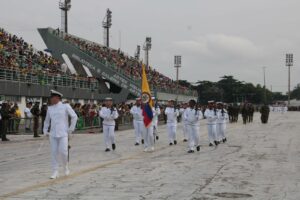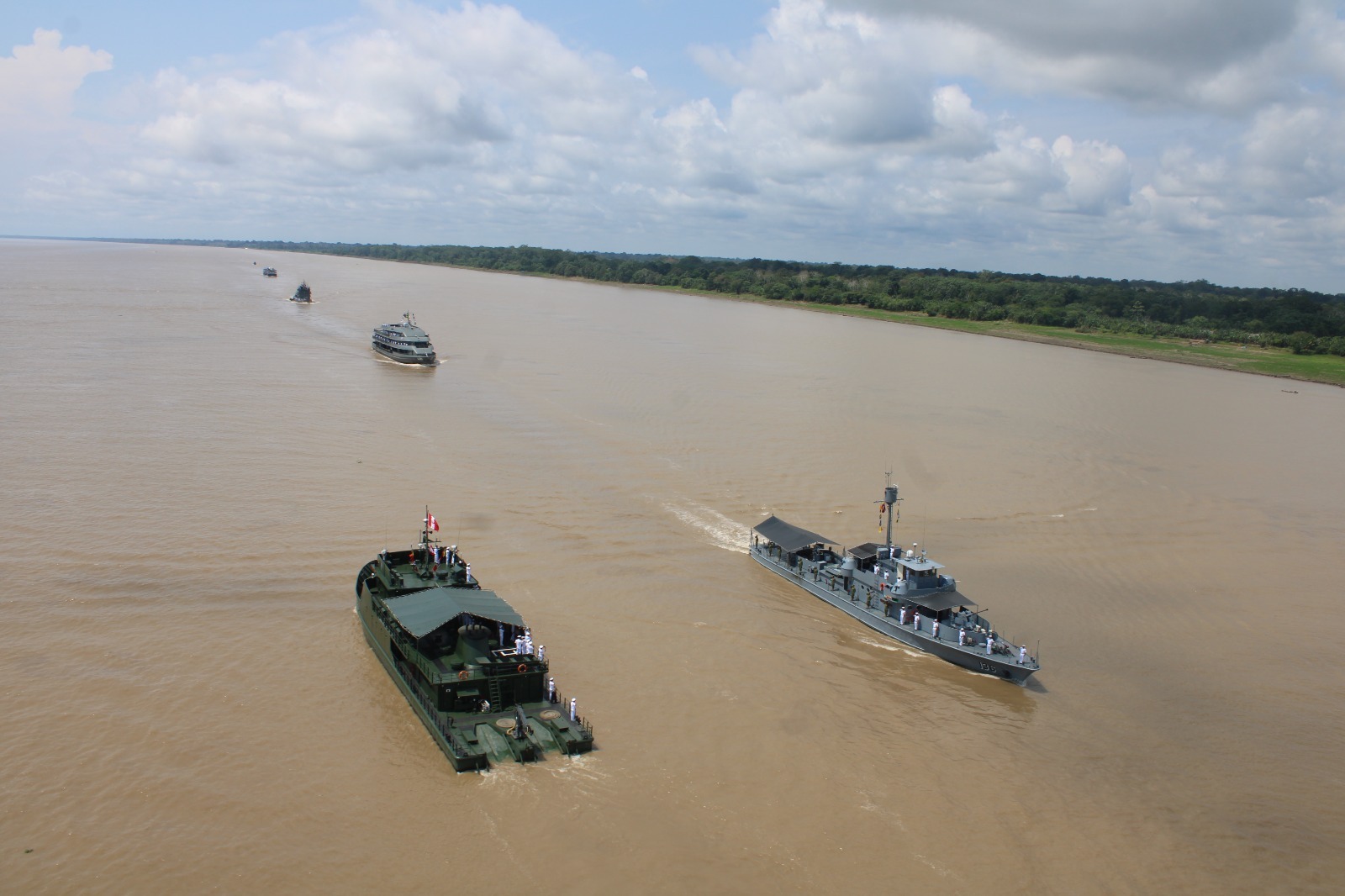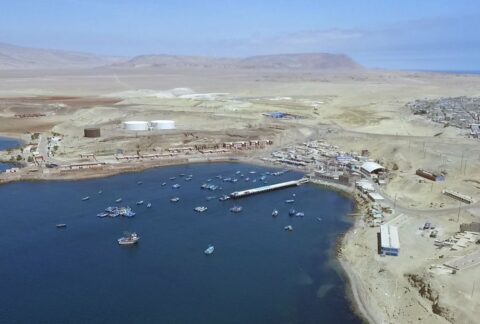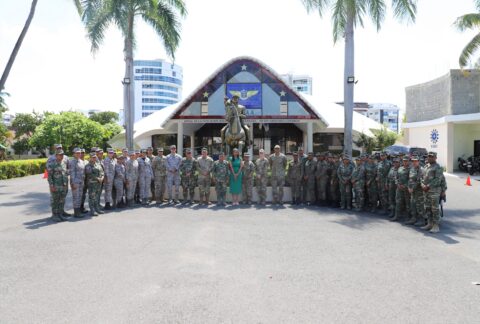Naval units of the Brazilian, Colombian, and Peruvian navies came together along the main rivers of the triple border as part of training exercise BRACOLPER Naval 2023, now in its 48th iteration. The operation sought to strengthen combined actions against transnational crime on the triple border.
Vessels from all three countries traveled along the main tributaries of the Amazon during the three phases of the exercise between the cities of Leticia, Colombia; Iquitos, Peru; and Manaus, Brazil, August 22-September 9. The Colombian Navy was represented by the Southern Fluvial Flotilla and the Marine Infantry Fluvial Battalion No. 30, aboard the river gunboat ARC Leticia. The Peruvian Navy participated with the Riverine Gunboat BAP Clavero and BAP Castilla, and the Brazilian Navy carried out the training with riverine patrol boats Raposo Tavares from Amapá, Soares de Meirelles from Rondônia, and the Hospital Assistance Ship Oswaldo Cruz.
“We successfully concluded the participation of the river gunboat ARC Leticia […], which sailed more than 4,600 kilometers over the main water tributaries in the border area with Brazil and Peru, carrying out nearly 20 naval exercises together with the Brazilian Navy and the Peruvian Navy,” Colombian Navy Rear Admiral Orlando Alberto Cubillos Chacón, commander of the Amazon Naval Force, told the media. “These exercises made it possible to coordinate procedures and communications in accordance with the standards established by the North Atlantic Treaty Organization [NATO], thus strengthening naval capabilities and interoperability to confront transnational crimes that affect security, development, and ecosystems in the Amazon.”

As part of the activities, participating navies displayed their naval capabilities during military parades to celebrate the different national holidays of each country: The Colombian Navy celebrated the 213th anniversary of the Independence of Colombia and the 200th anniversary of the Battle of Lake Maracaibo, on the bicentennial year of the Navy; Peru celebrated the 202nd anniversary of its Independence; while for Brazil it was the 201st anniversary of its Independence.
Naval authorities committed to exchanging information on an ongoing basis, and to carrying out development assistance days to provide different services to riverine communities of the three countries, the Colombian Ministry of Defense said via X. They also pledged to offer immediate humanitarian aid and to advance concrete actions for the preservation of the Amazonian environment.
BRACOLPER exercises have been carried out since 1974 and seek to strengthen capabilities to face the challenges of transnational crimes in the triple border, which has been used as a corridor for the transit of cocaine, environmental crimes such as deforestation, timber trafficking, and illegal gold mining.
“The remote areas have little state presence and the dense tree canopy makes illicit activities and armed groups almost invisible,” InSight Crime, an organization dedicated to studying organized crime in Latin America, indicated.
According to the Colombian Navy’s Amazon Naval Force, over the course of 2023 (as of October 1), combined operations between Colombian and Brazilian authorities resulted in the seizure of 9,661 kilograms of marijuana, 4,505 liters of liquid chemical precursors, 12 weapons of different calibers, 956 rounds of ammunition of different calibers, $3,336 in foreign currency, and the seizure of two wildlife species. Within the same period, Peruvian and Colombian authorities seized 400 kg of marijuana, 749 kg of cocaine hydrochloride, 61 cubic meters of wood, 16,569 liters of liquid chemical precursors, $22,754 in contraband, and one wildlife species.
“During the current year 2023, we have carried out important international operations such as UNITAS, SOLIDAREX, and the BRACOLPER operation in the triple border with the Amazon, among others,” Admiral Francisco Hernando Cubides Granados, commander of the Colombian Navy, told the press during the Ministry of Defense’s report on the first semester of 2023. “It’s important to understand that the future of our region is determined by collective efforts to find common solutions to complex transnational challenges in order to build a resilient and sustainable regional order.”









